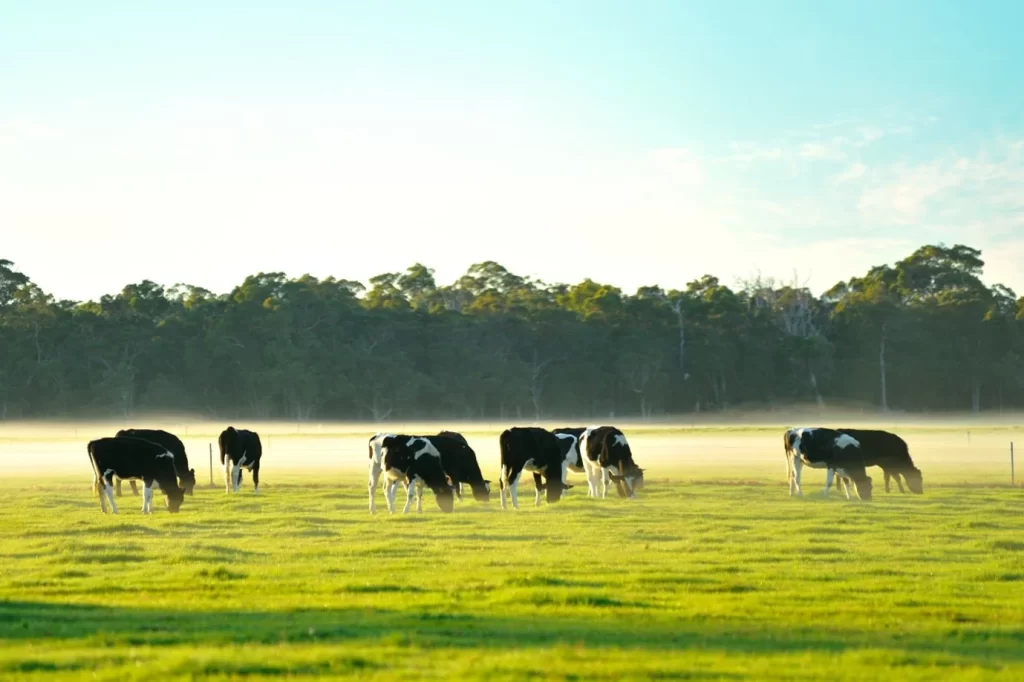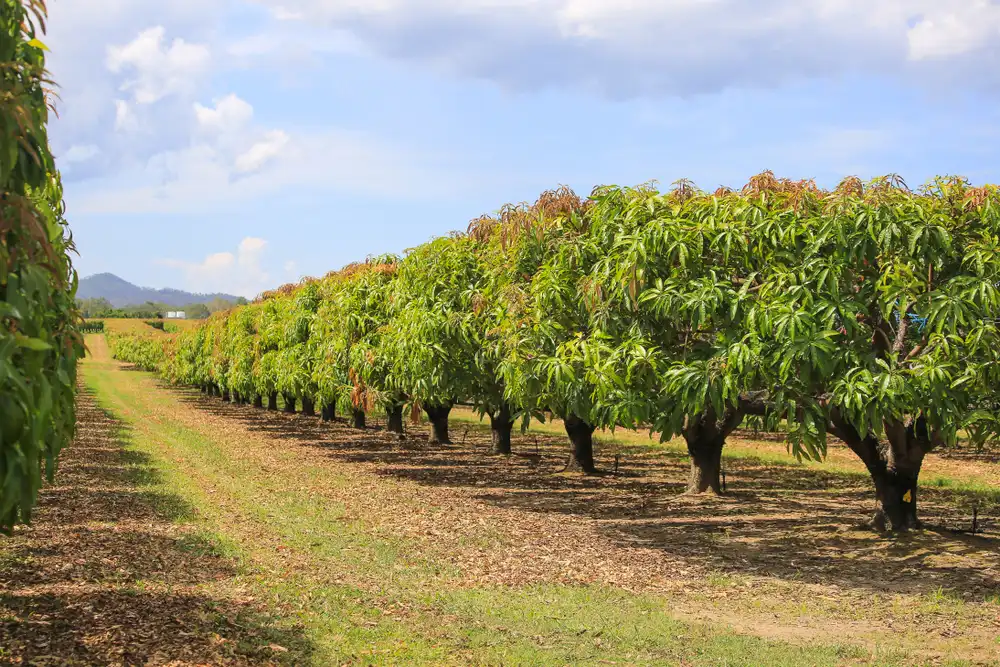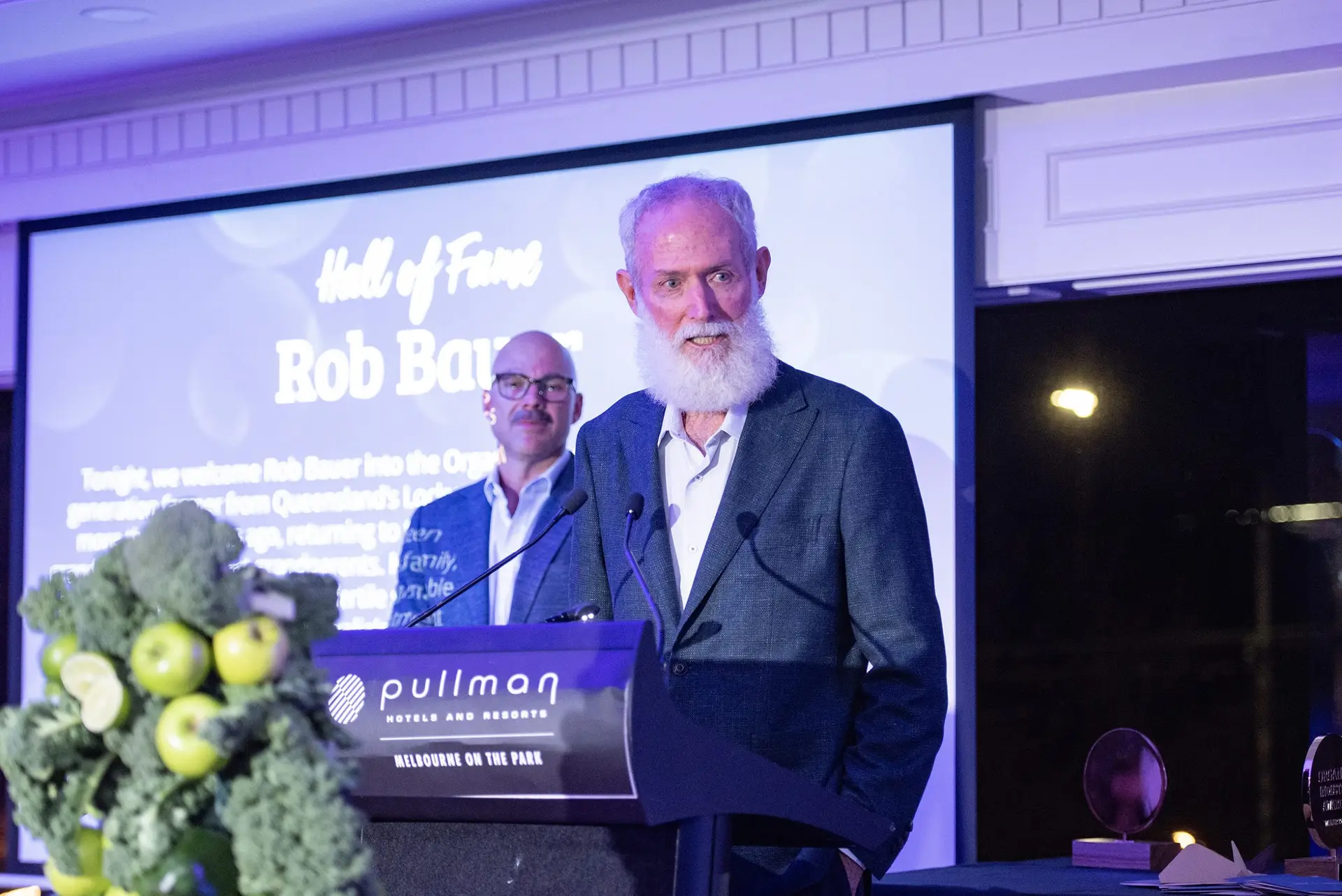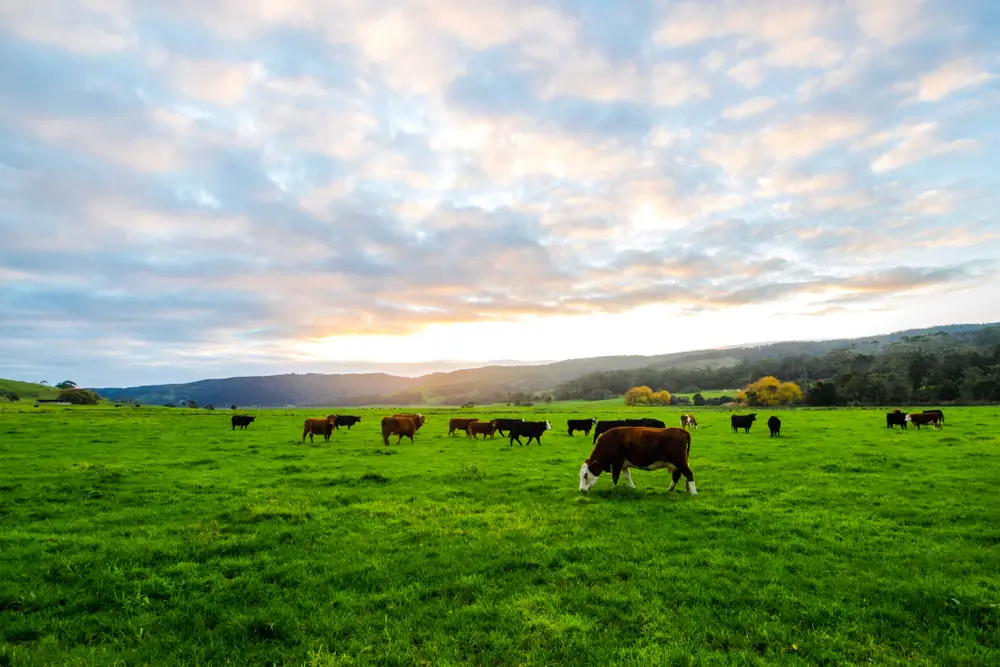The spread of Lumpy skin disease (LSD) and Foot-and-mouth disease (FMD) overseas is a cause for concern among Australian livestock producers. Any incursions could significantly impact our domestic and export industries, so it is vital that sound prevention strategies are adhered to and all stakeholders remain up-to-date on recent news.
The following is an update on recent developments, economic risks and current vaccine plans for both diseases, with implications for organic producers explored.
Disease Backgrounds
LSD
Lumpy skin disease (LSD) is a viral disease of cattle and water buffalo that causes relatively low mortality; however, the disease can result in animal welfare issues and significant production losses. Infection typically causes an acute disease with fever, depression, and characteristic skin nodules. There may also be a marked reduction in milk yield as well as abortion in pregnant animals. For more information on LSD and the signs and symptoms to look out for, go to Animal Health Australia.
FMD
Foot-and-mouth disease (FMD) is a serious and highly contagious animal disease that affects all cloven-hoofed animals including cattle, sheep, goats, camelids, deer and pigs. Cloven-hoofed animals are those with divided hooves; as such, it does not affect horses or zebras. The virus has 7 major serotypes[1] and is characterised by fever, salivation and vesicles in the mouth, muzzle, dental pad, tongue, teats and feet. The rupture of the vesicles results in depression, lameness, recumbency, loss of body condition, severe mastitis and abortions in affected animals[2]. For more information on FMD and the signs and symptoms to look out for, please visit Animal Health Australia.
Recent Developments
LSD
LSD is spread through infected animals and biting insects. Such insects may travel and be windborne with the potential to move substantial distances in the right conditions. The disease can also be spread by fomites through such things as contaminated equipment, and in some cases can be spread directly from animal to animal.
Before 2012, the distribution of LSD was limited to Africa and parts of the Middle East. Since 2019, LSD has spread throughout the Asian continent. In 2022, cases were reported in Indonesia with predictions the disease will continue to spread throughout the Indonesian archipelago, ever closer to Australia.
As an update from the government taskforce for managing LSD, the current containment strategy within Indonesia is viewed as insufficient and has heightened the incursion risk of an LSD outbreak in Australia. In such a case, the quick response of industry will be pivotal to potential containment, so it is integral that all industry participants are familiar with the disease and able to recognise symptoms.
As a member of the NFF Farming Systems Committee, AOL receive regular meeting briefings pertaining to the situation, and update members every month within our Policy and Technical newsletter.
FMD
FMD has been found on the island of Bali, and large-scale vaccination programs are underway[3]. The virus can be carried by live animals, detected within meat and dairy products, untreated hides, soil or bones, and can even survive in frozen, freeze-dried and chilled foods. As such, vehicles, equipment, clothing, footwear and other vessels can spread the virus. All bodily excretions and secretions (including aerosols) from infected animals contain the virus.
FMD is a disease of animals, not humans, and should not be confused with Hand, foot and mouth disease (HFMD) which is common in young children. As such, FMD cannot be transmitted to humans by eating affected meat. However, as potential vectors to the virus, there are regulatory cleaning measures in place for travellers and AOL advocates awareness and strict adherence to this should you travel to an FMD affected country.
Current Vaccine Situations
LSD
As the peak body for the organic industry, AOL have been in direct contact with the government, specifically the Exotic Animal Disease Preparedness Taskforce regarding the proposed vaccine strategy for LSD.
At this point in time, should LSD reach Australia, the current vaccine strategy is the administration of a live-attenuated non-GM vaccine. Live vaccines use a weakened (or attenuated) form of the living virus or bacteria. Because these vaccines are so similar to the natural infection that they help to prevent, they create a strong and long-lasting immune response. However, this also results in a situation where diagnostic testing cannot discern between naturally infected and vaccinated animals, and vaccinations may also cause infections in certain animals.
As such, if the vaccine was brought into Australia for preventative purposes, we would lose our current LSD-free status which would impact major export markets. There are several commercially available LSD vaccines being investigated for emergency use registration in Australia should an urgent need arise.
Live attenuated vaccines are considered an effective form of treatment for LSD regardless of potential side effects. Other options for vaccines such as non-GM inactivated vaccines (fewer side effects but require continual vaccinations for immunity) and a GM mRNA-based vaccine (could be used as a preventative strategy without losing LSD free status) are being explored as preventative measures, however these are many years away from being commercially available. AOL will continue to monitor the situation and work to ensure that viable options are made available for organic producers. For more information on LSD vaccines, please visit this link.
FMD
Australia has recognised the threat of FMD for a considerable time, and as such has access to an FMD vaccine bank containing several different vaccines providing protection against FMD strains circulating worldwide (including the strain in Indonesia). These are non-GM inactivated vaccines that already have regulatory approval within Australia.
At this time, a preventative vaccination program is not advocated by government. Current diagnostic testing cannot differentiate vaccinated animals from infected animals and as such, a vaccine program would only be initiated if there was an outbreak of FMD in Australia. Additionally, there can be multiple potentially adverse side effects from the live-attenuated vaccination, which is routinely required to ensure continued protection from the disease[4]. This could result in a similar situation to LSD, where alternate vaccine options are being evaluated but won’t be commercially viable for many years.
Economic Risks and Preventative Measures
If LSD or FMD outbreaks were to occur in Australia, there would be significant consequences for our beef, water buffalo, and dairy cattle industries, along with substantial trade impacts if Australia was no longer recognised as being free from these diseases. The cost of an LSD or FMD incursion would also encompass economic losses to Australia’s meat processing sector.
The Australian beef industry is worth approximately $61 Billion per annum. Currently, organic meat exports generate more than a quarter billion dollars of value for the Australian organic industry. Australia is one of the top 3 exporters of beef worldwide; however, the success and reputation of the industry is predicated on ongoing high health standards for cattle.
Should FMD or LSD reach Australia, the current emergency response is to act quickly to curb the spread of the disease. This involves culling all cloven-hooved animals (FMD) or bovines (LSD) within a given area, establishing a clear exclusion zone and implementing a vaccination strategy to prevent a larger scale outbreak. Managing feral cattle, buffalo, deer, goat and pig populations will help to minimise the potential economic and productivity impacts of LSD and FMD. Please contact your local land service groups, relevant land councils, or state and territory agricultural departments for further insight into current feral animal control programs.
Additionally, it is important to have sound biosecurity practices and measures in place for vehicles and visitors to your property. Please read this article from Meat & Livestock Australia for more details, and consider ordering an AOL Farm Biosecurity Sign for Visitors if you are Bud certified.
Remember to seek advice from your certification body to confirm that any potential new management practices don’t affect your organic certification.
Conclusion
LSD and FMD constitute significant risks to organic and conventional livestock sectors alike. However, while there is a lot of recent press on the two diseases, the current Structured Expert Judgement of an FMD incursion for Australia in the next five years in 11.6 per cent (up from 9 per cent in March 2021). For LSD, the risk is placed at 28 per cent.
In the case of LSD, AOL will continue to advocate for a non-GM vaccine options for certified organic producers. For further reading, take a look at the government websites for LSD or FMD. Always remember to report a biosecurity concern immediately if you suspect any sick animals, or call the Emergency Animal Disease Watch Hotline on 1800 675 888.
NOTE: Information is valid as of September 2022. AOL will endeavour to update this document with new information as it becomes available.
[1] Kahn CN, Line S. The Mercks Veterinary Manual. Ninth Edition. New Jersey, USA: Merck and Company Incorporated, White House Station; 2005. pp. 507–510
[2] Radostitis OM, Gay CC, Blood DC, Hinchcliff KW. Veterinary medicine: A textbook of the diseases of cattle, sheep, pigs, goats and horses. Ninth edition. London. UK: W.B.Saunders company. Harcourt Publishers; 2000. pp. 1059–1066.
[3] Available at: https://siagapmk.crisis-center.id/
[4] Zhang, K. , Lu, B. , Liu, H. , Zhao, J. , Zheng, H. and Liu, X. (2018) Adverse Effects of Inactivated Foot-and-Mouth Disease Vaccine—Possible Causes Analysis and Countermeasures. World Journal of Vaccines, 8, 81-88. doi: 10.4236/wjv.2018.84007.





